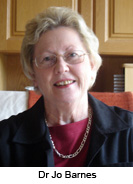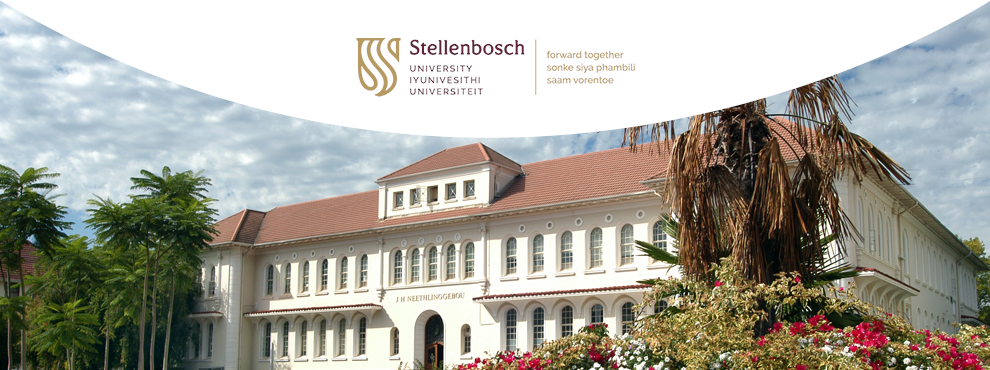News archive
Polluted water leads to health crisis |
| Posted by Administrator (admin) on Jul 31 2013 |
| News archive >> Latest news |
 Health services are struggling under the burden of diseases resulting from environmental pollution, particularly water pollution. This potentially avoidable crisis, however, is slowly developing into a disaster. Dr Jo Barnes endeavours to do something about this situation, even if it is only to draw attention to it. In 2009 she was awarded the Order of the Disa for her excellent community service and interaction. There is progress, she says, but the challenges are enormous …
Health services are struggling under the burden of diseases resulting from environmental pollution, particularly water pollution. This potentially avoidable crisis, however, is slowly developing into a disaster. Dr Jo Barnes endeavours to do something about this situation, even if it is only to draw attention to it. In 2009 she was awarded the Order of the Disa for her excellent community service and interaction. There is progress, she says, but the challenges are enormous …
What does your research on water quality in rivers entail?
My major interest involves water-borne diseases and the environmental impact of polluted water from and to communities. Water is a very interesting substance – it is by far our best cleaner, but also one of our most effective carriers of diseases. It all depends on how your use and treat it – this will be the factor determining whether you will be able to use it for cleaning purposes or if it will make you sick. Few substances in nature display such opposing roles.
My research focuses particularly on the poor areas and areas lacking proper sanitation. My investigation revolves around the considerable amount of pollution, especially sewage, which reaches our rivers, the associated health risks as well as its major consequences. It is like the rings of an onion: it becomes larger and larger. In the first instance it concerns drinking water; however, irrigation water for edible crops is an equally effective carrier of diseases affecting man. Diseases carried over to slaughter stock also have an impact on the food chain. Infected water poses a risk to people working with the irrigation water.
We have to motivate people in the communities to work more hygienically and safely with the water in their area. And we need to consider the services that are rendered or not rendered and the consequences thereof.
What lies at the heart of the problem?
According to a Water Research Commission report approximately 36% of the clean drinking water supplied to municipalities is lost. So, before we can even start considering the re-use of water, we have to get the systems in order as fast as possible so that we can save the more than a third of the water that is being lost at municipal level. Our water will go far if we stop our careless attitude towards it.
Purified water runs away due to inter alia burst pipes or is used illegally. In some areas the services are so bad that burst pipes go unrepaired for up to six months.
Just over half of the municipalities in the country could provide information for the annual Blue Drop and Green Drop reports on the status of our water purification works and sewage works. Of the more than 700 municipalities in the country only 7% provides a product of an acceptable standard.
There are thus systemic reasons for the exponential increase in the considerable amount of pollution and the fact that it is slowly heading towards a disaster. We live in a dry country and our health is closely related to the availability of clean water.
Has there been progress?
It is my life mission to try and do something about this, even if I can only succeed in drawing attention to the problem and reporting it to the right authorities. The officialdom’s first line of defence, however, is to deny the problem.
We have made progress from “there is no problem” to “I am not aware of the problem”. People are now realising that there is a problem, but are arguing about who should be carrying the blame. Hopefully the next step is that someone will do something about it.
How does this affect sustainability?
Sustainability is the ability to treat a source in such a manner as to ensure it continues to exist. Water is part of our continued existence and if we continue treating water as we presently do, we will not survive. Our demand for water is nearly as great as that offered by our available water resources.
It is estimated that in the Western Cape the demand will exceed all available water resources between 2015 and 2025, depending on how much we save. It is therefore extremely important that we do not pollute that which we do have.
We should not waste that which we have, but also not pollute it. We cannot allow our rivers to become sewage ditches.
How great are the challenges?
The challenges are tremendous because the official systems for bulk operations in this respect are falling apart – the municipal services, local authority services and related supervision. One of the greatest problems is that maintenance has become a dirty word to municipalities. All are building new systems and do not maintain that which they have – as if the old does not exist.
As far as maintenance is concerned, drastic upgrading is essential. This is routine work without which we cannot do, but it’s not difficult. It is just that has to be done. Maintenance must improve so that we don’t waste that which we do have due to leakages, and so that it does not become polluted. The issues not only involve fresh water that is lost due to leakages, but also sewage that leaks out. These two pollute each other, with both systems suffering from a very serious lack of maintenance.
This is the point where I would start: Looking at what we do have, meanwhile starting to develop alternative uses and re-uses for water. If we are to purify water for re-use, we will have to take a serious look at what water we use for the irrigation of edible crops, because this is also a source of infection.
What problems can be created by the re-use of water?
We have done very little research on this in South Africa. What I am concerned about, is that we are not really a nation who obeys regulations. And there will have to be strict regulations pertaining to how and where you can re-use water so that it can be safe and so that you don’t create a greater problem than the starvation it tries to prevent because of a lack of food or water.
I am worried that if we cannot even supervise municipalities, how will we be able to supervise the house of every Tom, Dick and Harry to keep an eye on what they are doing there? We will have to devise a better civil system before we can re-use water safely from the house to the garden and back to the house.
I would like to see a step in between. Water must first be channelled through built wetlands so that it can be so clean that one will for instance be able to use it to hose down pavements and irrigate sports fields. From a health point of view I would like to add such a step in between to prepare people for the many uses of cleansed water that cannot be used as drinking water.
In what community projects are you involved?
A doctoral student and I investigated sanitation problems in RDP/HOP houses in the Cape Town area. Approximately 58% of the toilets in these houses are not in working order, which results in massive environmental pollution due to sewage leakages and blocked drains. Residents also display a concerning lack of knowledge about hygiene as well as hygienic behaviour.
I am also still monitoring the Berg River for the Berg River Irrigation Board to check the irrigation safety of the water in this river. The river shows varying levels of pollution – once again most of the pollution comes from town and village areas bordering on the Berg River.
A post-doctoral research associate of mine is currently investigating domestic grey water in RDP/HOP houses to determine whether one can recommend its direct use. Our aim is to determine the actual contents of this water.
What is the solution for water pollution?
We have to start doing our homework by repairing and supervising things. Simple domestic actions will already be a great start. Then we have to investigate improved systems that use less water.
unicipalities have been appointed to supervise ordinary citizens’ compliance with water regulations but who is supervising the municipalities who stand first in line when it comes to wasting water? We will have to establish improved cooperative systems – we cannot continue doing the same as what we have been doing.
Last changed: Nov 28 2013 at 7:23 AM
Back